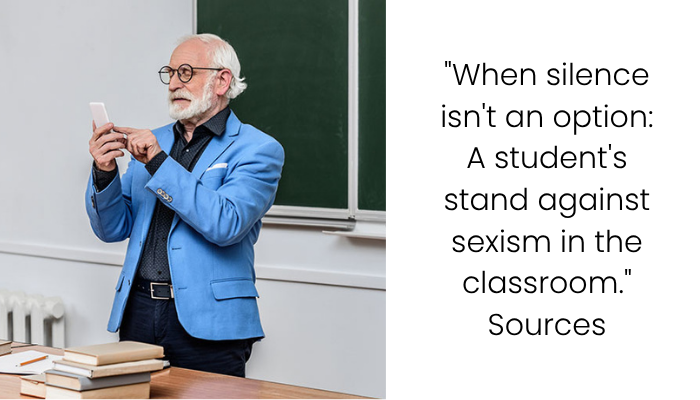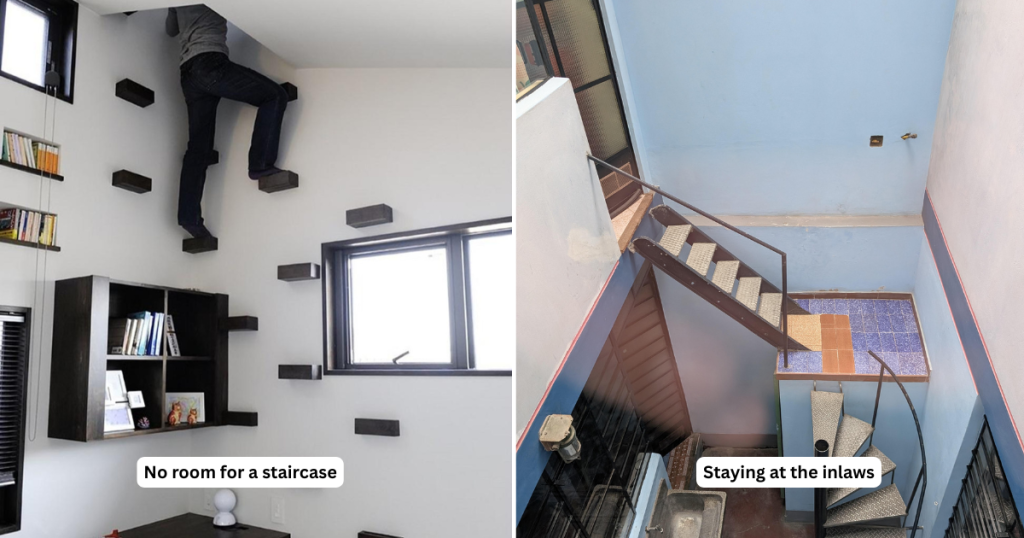Exposing Academic Misconduct: When Student Action Leads to Institutional Accountability

In a revealing account from a university student, a professor’s persistent sexist remarks and discriminatory behavior in the classroom culminated in his dismissal after being covertly recorded. The student, disturbed by the professor’s comments—ranging from undermining female students’ capabilities to making inappropriate jokes about their attire—decided to document these instances. The recordings, submitted anonymously to the university’s disciplinary committee, prompted an investigation that led to the professor’s termination. While some male classmates criticized the student’s actions, many female students expressed gratitude, highlighting a longstanding discomfort with the professor’s conduct.
Advertisement – Continue Reading Below
This incident underscores the challenges students face in addressing misconduct by those in positions of authority. It also raises questions about the balance between personal ethics, institutional policies, and the broader implications of holding educators accountable for their behavior.
Ideally, the academic world should be free of ideology and personal bias

But as this student’s experience shows, that’s not always the case












Navigating the Complexities of Addressing Sexism in Academia
Advertisement – Continue Reading Below
The decision to record and report a professor’s sexist remarks is fraught with ethical, legal, and emotional complexities. In the scenario presented, a student took the bold step of documenting repeated instances of gender-based discrimination by a faculty member, leading to the professor’s dismissal. This action, while commendable in its intent to uphold equity, invites a deeper exploration of the multifaceted issues surrounding such decisions.
The Prevalence and Impact of Sexism in Academic Settings
Sexism in academia is not an isolated phenomenon. Studies have consistently shown that female students and faculty often face subtle and overt forms of discrimination. According to a study published in Science, women in STEM fields frequently encounter biases that question their competence and commitment. Such environments can lead to decreased participation, lower self-esteem, and even attrition from academic programs.
Advertisement – Continue Reading Below

In the described case, the professor’s comments—ranging from dismissive remarks about female students’ capabilities to inappropriate comments about their appearance—contributed to a hostile learning environment. These behaviors not only undermine the affected students’ educational experiences but also perpetuate a culture where such discrimination is normalized.
Legal Considerations: Recording Without Consent
Recording conversations without consent is a legal gray area that varies by jurisdiction. In the United States, federal law permits one-party consent, meaning only one person involved in the conversation needs to consent to the recording. However, some states require all parties to consent. In educational settings, universities often have policies that prohibit unauthorized recordings to protect privacy and intellectual property rights.
Advertisement – Continue Reading Below
Despite these policies, exceptions are sometimes made, especially when the recordings serve as evidence of misconduct. For instance, the University of Florida allows students to record lectures without prior notice if the recordings are for personal educational use or to support a complaint to the university.
Institutional Responses to Faculty Misconduct
Universities have a responsibility to maintain a safe and inclusive environment for all students. When faculty members engage in discriminatory behavior, institutions are obligated to investigate and take appropriate action. The American Association of University Professors (AAUP) outlines that serious misconduct, such as sexual harassment or discrimination, may justify dismissal of a tenured faculty member.
Advertisement – Continue Reading Below
In the case at hand, the university’s decision to terminate the professor following an investigation suggests that the documented behavior was deemed incompatible with the institution’s standards and values.
The Role of Whistleblowers in Academia
Whistleblowers play a crucial role in bringing attention to unethical practices within organizations. However, they often face backlash, including social ostracism and professional repercussions. The student’s experience of receiving negative reactions from peers highlights the challenges whistleblowers encounter, even when their actions lead to positive institutional changes.
Advertisement – Continue Reading Below

It’s essential for universities to support individuals who come forward with legitimate concerns. Providing clear reporting mechanisms, ensuring confidentiality, and protecting against retaliation are critical components of fostering an environment where misconduct can be addressed effectively.
Balancing Academic Freedom and Accountability
Academic freedom is a cornerstone of higher education, allowing faculty to explore, teach, and discuss ideas without fear of censorship. However, this freedom does not extend to behavior that discriminates against or harasses students. The AAUP emphasizes that while academic freedom is vital, it must be exercised responsibly and in accordance with professional ethics.
Advertisement – Continue Reading Below
In situations where a faculty member’s conduct infringes upon students’ rights to a respectful and equitable education, institutions must balance the protection of academic freedom with the need to uphold a safe learning environment.
Most of the people who read his story said the guy did the right thing by exposing the professor






Conclusion: Upholding Integrity in Education
The student’s decision to record and report the professor’s sexist remarks underscores the importance of individual agency in challenging systemic issues. While the path taken involved personal risk and controversy, it ultimately led to institutional accountability and a reaffirmation of the university’s commitment to equity.
Advertisement – Continue Reading Below
Addressing discrimination in academia requires collective effort. Institutions must establish clear policies, provide support for those who report misconduct, and ensure that faculty members are held to standards that promote inclusivity and respect. Only through such comprehensive approaches can higher education fulfill its mission of fostering an environment where all students have the opportunity to thrive.






